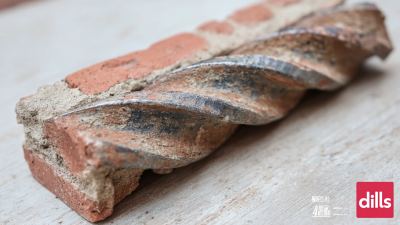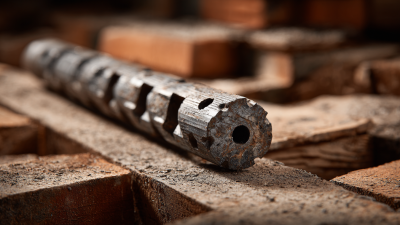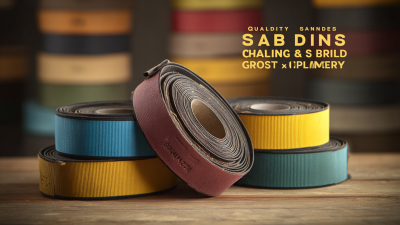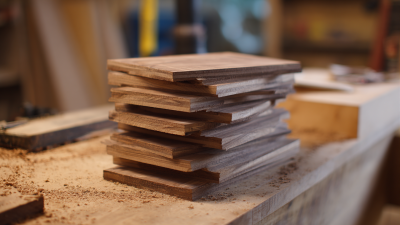FREE SHIPPING ON ALL BUSHNELL PRODUCTS
Leave Your Message
When embarking on a masonry project, the choice of tools significantly impacts both efficiency and outcome. One of the most crucial tools in this regard is the Brick Masonry Drill Bit, designed specifically for penetrating hard materials like bricks and concrete. According to a recent industry report by Research and Markets, the global market for masonry tools is expected to grow at a CAGR of 4.5% from 2021 to 2026, highlighting the increasing importance of specialized tools in construction. Selecting the right Brick Masonry Drill Bit can not only enhance drilling speed and precision but also extend the lifespan of both the bit and the drill itself. Understanding the various types, materials, and sizes available in the market is essential for professionals and DIY enthusiasts alike, ensuring that every project is completed to the highest standard.
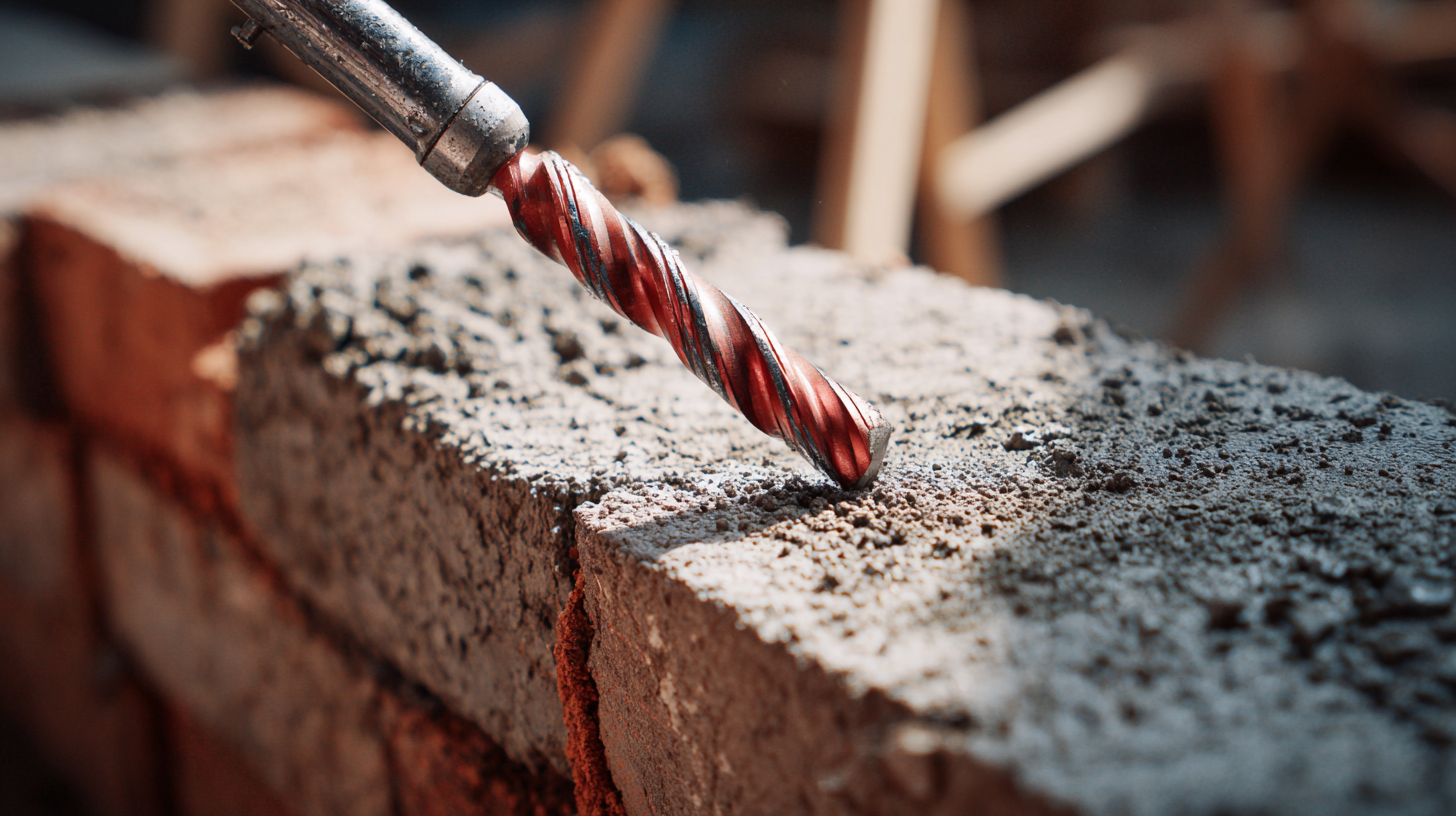
When it comes to tackling brick masonry projects, selecting the right drill bit is crucial for ensuring efficiency and achieving clean results. Different types of brick masonry drill bits are designed with specific tasks in mind. For instance, carbide-tipped masonry bits are ideal for drilling into masonry, providing durability and precision. These bits are created to withstand the high impact and wear caused by the hard surface of bricks and concrete.
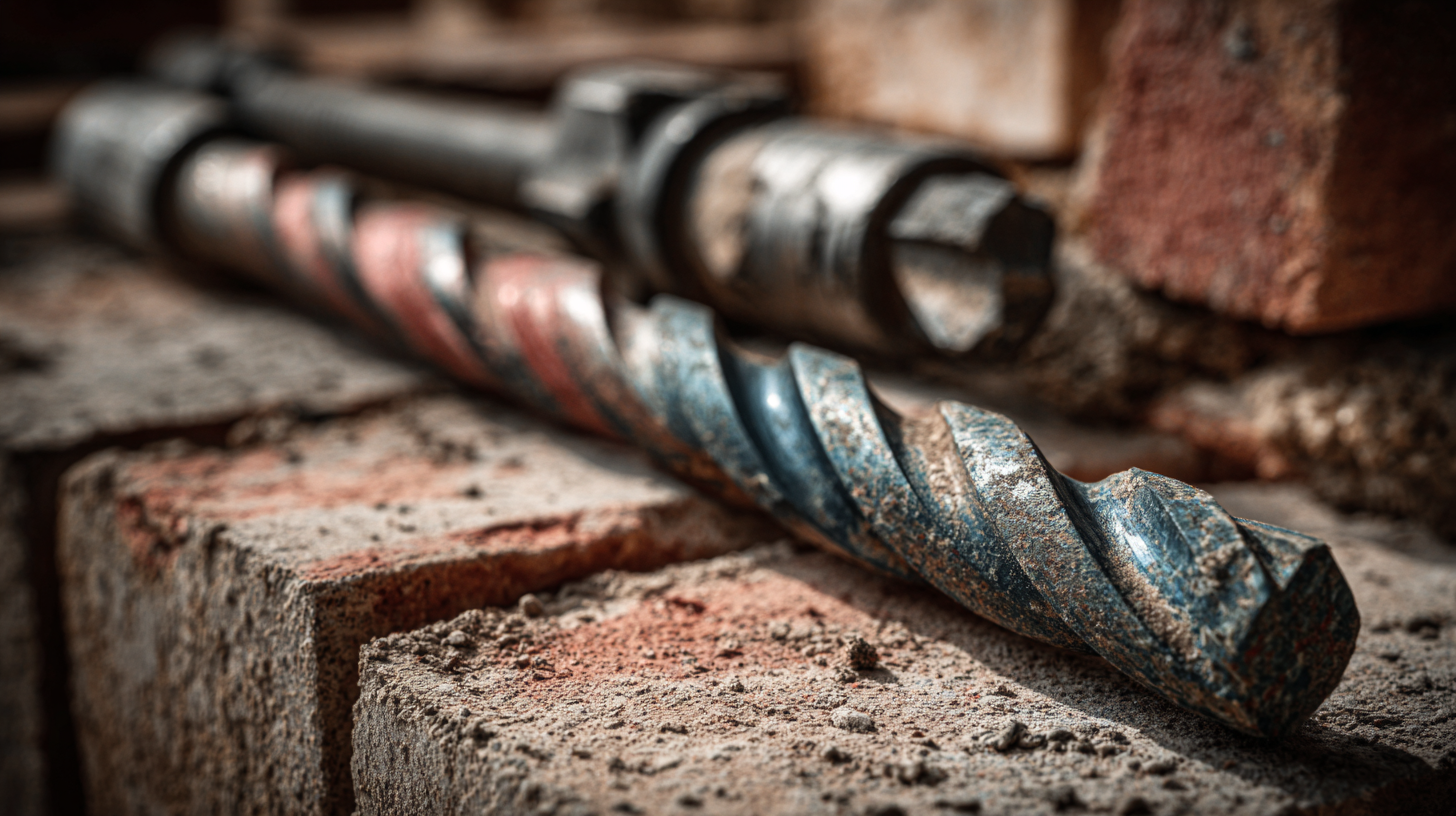 Another option is the diamond-core drill bits, which excel in larger hole applications where a smooth finish is essential. These bits are constructed with diamond-coated materials that allow them to cut through tough materials with ease and longevity. Understanding the distinctions between these various types is vital not only for effectiveness but also for prolonging the lifespan of your tools. Whether you’re working on a small DIY project or a larger construction job, choosing the appropriate drill bit will significantly influence the outcome of your work.
Another option is the diamond-core drill bits, which excel in larger hole applications where a smooth finish is essential. These bits are constructed with diamond-coated materials that allow them to cut through tough materials with ease and longevity. Understanding the distinctions between these various types is vital not only for effectiveness but also for prolonging the lifespan of your tools. Whether you’re working on a small DIY project or a larger construction job, choosing the appropriate drill bit will significantly influence the outcome of your work.
When selecting the right brick masonry drill bit for your project, several key factors need to be considered to ensure optimal performance. First, assess the type of material you are drilling into. For instance, standard masonry bits are suitable for softer bricks, while more robust materials may require diamond-tipped or carbide bits designed for heavy-duty use. Understanding the material will help you choose a bit that provides better durability and efficiency.
Another important factor is the size and length of the drill bit. Depending on the depth and diameter of the holes you need, selecting the appropriate size is crucial. If you’re working with thicker bricks, opt for longer bits to ensure that you can achieve the necessary penetration without damaging the surrounding material. Additionally, consider the drill’s power and speed settings, as these can significantly impact the effectiveness of the drill bit and the overall quality of your work.
Choosing the right drill bit size is crucial when working with brick masonry to ensure the effectiveness and efficiency of your project. According to a report by the National Association of Home Builders, contractors emphasize that using the correct bit size can lead to a 30% increase in performance and a significant reduction in material wastage. For instance, when drilling into brick, a bit diameter that matches the anchor size intended for installation is essential. A common practice is to measure the diameter of the anchors you plan to use and select a drill bit that is 1/32 inch larger for optimal fitting.
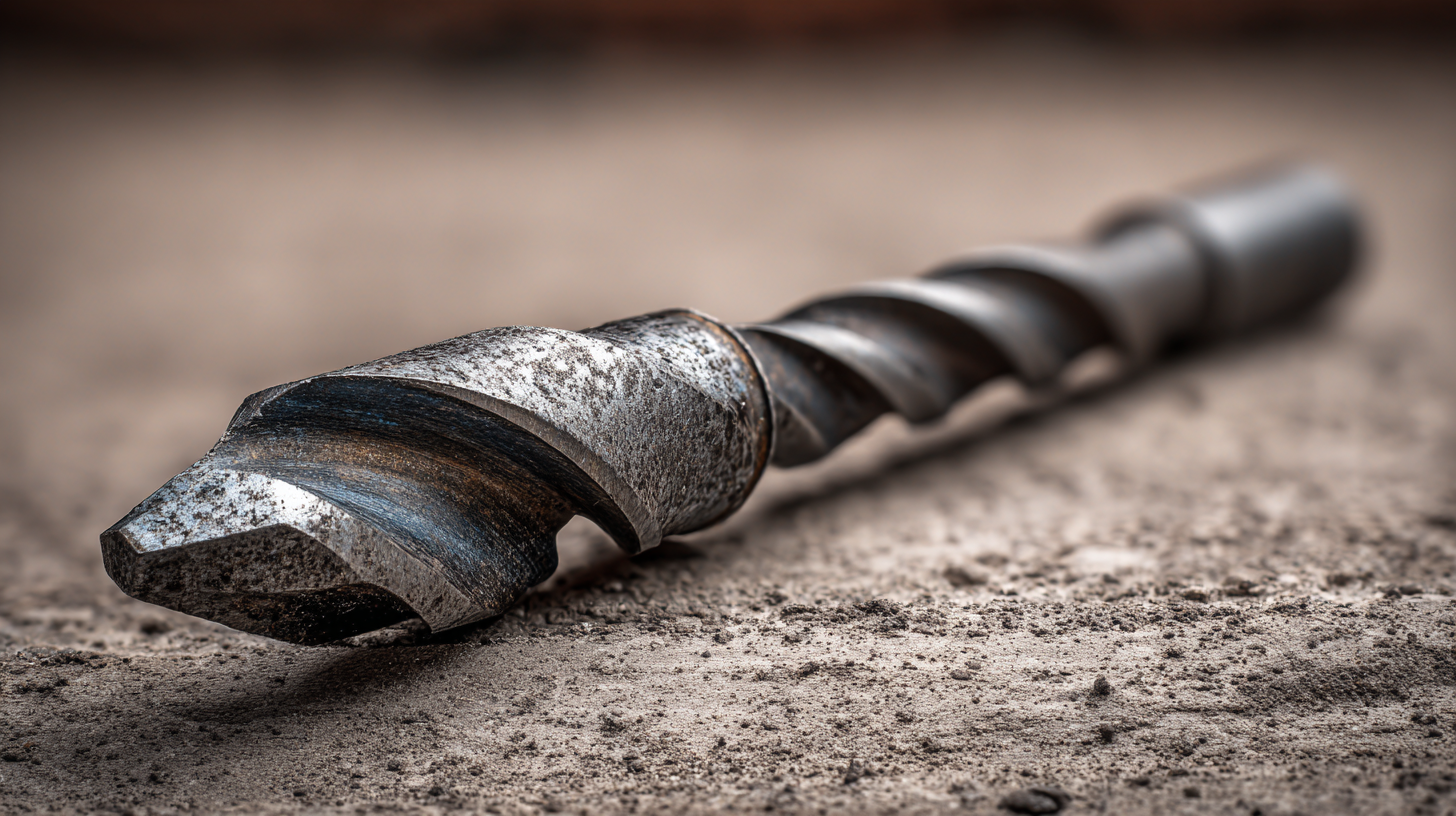
When selecting a quality masonry drill bit, it's crucial to consider several essential features that enhance performance and durability. Firstly, the material of the drill bit plays a significant role. Carbide-tipped bits are widely regarded for their ability to penetrate tough materials like brick and concrete, providing longevity and efficiency. Additionally, looks for bits with a tough coating that reduces friction and heat buildup, which contributes to cleaner drilling and longer life.
Another important aspect to evaluate is the bit's design, particularly the tip geometry. A productive masonry drill bit often features a pointed or chisel-like tip, which helps initiate drilling with precision. Spiral flutes should also be deep enough to effectively remove debris from the hole, enabling faster drilling and minimizing the risk of the bit binding. Lastly, ensure that the bit is compatible with your drill type, as an improper fit can significantly impact performance and ease of use.
To extend the life of your brick masonry drill bit, proper maintenance is crucial. One of the most effective practices is to always keep your drill bit clean. After each use, remove any debris or dust that may have accumulated on the bit and in the drill's chuck. This helps prevent wear and tear and ensures optimal performance during your next project. Additionally, consider soaking the bit in a solution of warm water and mild detergent to eliminate stubborn residues, followed by thorough rinsing and drying.
Another key maintenance tip is to regularly inspect your drill bit for any signs of damage or dullness. If you notice that the bit is losing its sharpness, it may be time to resharpen it or replace it entirely. Using a dull bit not only slows down your work but can also lead to uneven holes or even damage to the material you are working on. Finally, store your drill bits in a dry place, preferably in a protective case, to prevent moisture exposure and physical damage, ensuring they remain in good condition for future use.
| Bit Type | Diameter (inches) | Length (inches) | Material | Usage Tips | Maintenance Tips |
|---|---|---|---|---|---|
| Masonry Bit | 1/4 | 6 | Carbide | Use water for cooling | Clean after each use |
| Hammer Drill Bit | 3/8 | 8 | Steel | Drill at a lower speed | Lubricate regularly |
| Diamond Core Bit | 1/2 | 10 | Diamond-Coated | Use with a core drill | Avoid overheating |
| SDS Plus Bit | 5/16 | 6 | Tungsten Carbide | Ensure proper fit in tool | Keep it dry and clean |
| Auger Bit | 3/4 | 12 | High-Speed Steel | Test the surface before full penetration | Store in a dry environment |
